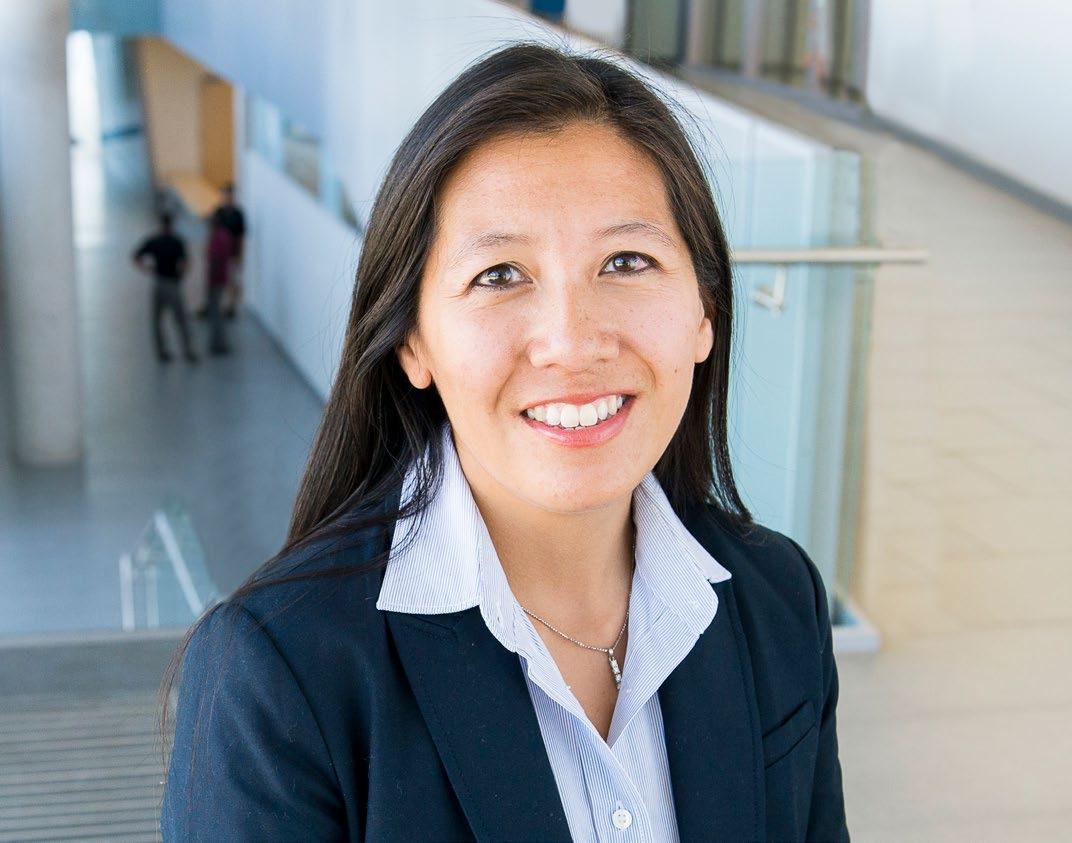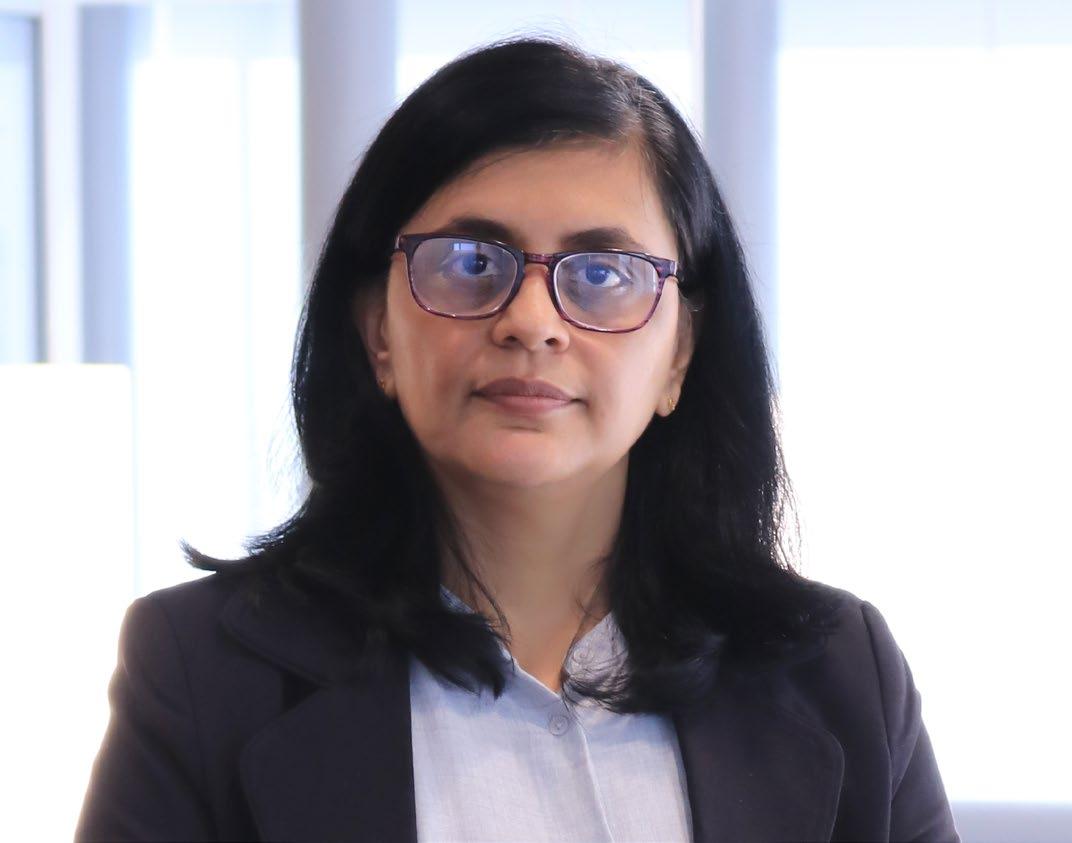
7 minute read
2020 Departmental Researcher of the Year Award recipients
DIRK DE CLERCQ
Professor of Management Departmental Researcher of the Year Award Winner for Organizational Behaviour, Human Resources, Entrepreneurship and Ethics
Primary research focus:
The antecedents, nature and outcomes of people's entrepreneurial activities, at the individual, firm and country levels.
What are some of the most significant antecedents impacting the outcomes of entrepreneurial activities?
“Doing Good, Feeling Good? Entrepreneurs’ Social Value Creation Beliefs and Workrelated Well-being" is a recent study I did with colleagues that was published in the Journal of Business Ethics. It’s based on secondary data collected from German and Swiss entrepreneurs and shows that entrepreneurs report higher job satisfaction and work engagement, and lower work burnout, to the extent that they believe their organization creates social value. A key explanation for that is their sense of work meaningfulness, which in turn is activated by their social concerns with respect to the common good.
Were there any surprises in your findings?
Social and commercial entrepreneurial activities may differ, but the choice between them is not binary. Social and commercial objectives, in fact, may complement and reinforce each other.
What can companies and governments do to better support and encourage the success of entrepreneurs?
Entrepreneurs are happier with their work when they believe they create social value with their businesses — particularly if they have concerns about the common good and well-being of society. Entrepreneurship educators might highlight the importance of social value creation and teach various pathways to reach this outcome, which would benefit not only society but also the entrepreneurs themselves. Entrepreneurs also might actively launch social value programs within their companies to encourage stronger commitments to and opportunities for pursuing social value creation goals among employees. For example, they might ask employees to come up with their own ideas for how the organization can make positive societal contributions. Finally, entrepreneurs with strong social concerns likely thrive most to the extent that they can adjust their businesses’ social orientation to match their own personal priorities.

Michelle Lau
MICHELLE LAU
Assistant Professor Departmental Researcher of the Year Award Winner for Accounting
Primary research focus:
Using economics, psychology, and sociology theories to examine the use of accounting for judgment and decision making by managers.
What are some of the ways accounting information can affect trust levels between people?
Many assume accounting is objective, value-free, and representative of external realism, providing an “as is” view of economic reality. Though accounting aims to provide a clear picture of reality, economic reality is socially constructed by accounting. Accounting is also the language of business, and often the starting point for business decision making. Relying on a socially constructed version of reality requires trust, and comes with the expectation it is grounded in integrity and competence. Yet, the socially constructed reality accounting aims to present does not exist independently of people’s beliefs and attitudes, which subjectively influence situations in limited and one-sided ways. In turn, accounting can affect all stages of trust among stakeholders; for example, sharing proprietary accounting information can help to establish and maintain trust across economic partners in negotiations. Likewise, proprietary information can be used opportunistically, impairing trust. Accounting can also violate expectations of economic reality, exacerbating trust as illustrated by corporate scandals such as Enron and Lehman Brothers. Still, accounting can be used to repair trust with mandatory regulations, including Canada’s recently enacted Extractive Sector Transparency Act used to increase transparency and reduce corruption within the global extractive industry.
Do more regulations create greater trust between stakeholders?
Much research remains to be done. Whether accounting regulations affect trust symbolically, based on traditional assumptions of accounting as an objective representation of external realism, or can substantively change human behaviour towards honesty and integrity may hold the answer for managing stakeholder trust.
How do you hope your findings will be used in the world of accounting?
My research underscores accounting as a social construction of reality rather than an objective presentation of reality, which is key for improving the use of accounting for making decisions.
The Goodman School of Business Departmental Researcher of the Year Award recognizes research excellence among faculty members in each of the School’s four departments. Excellence in research is represented by the quality and quantity of refereed publications, grants, awards and other research-related activities accomplished in the previous academic year (July 1 to June 30) as reported in the annual report. Each recipient is presented with a plaque and a monetary award deposited in the recipient’s university research account.

Kai-Yu Wang
KAI-YU WANG
Professor of Marketing Departmental Researcher of the Year Award Winner for Marketing, International Business and Strategy
Primary research focus:
Investigating the development of brand loyalty in brand communities from a positive psychology perspective.
Many people think of the flow theory as it applies to work and being absorbed by the task at hand. What is it related to a brand and brand loyalty?
Flow refers to individuals' experience of full engagement, fun and enjoyment in performing or participating in an activity. Researchers have argued that consumer experience should be the centre of brand community. Flow has been shown to enhance customers’ relationships with a brand and its community. This research investigates the role of flow experience in building brand loyalty. Specifically, we study what generates flow experience and how flow influences brand loyalty in brand communities.
What inspired you to do this research?
Years ago, I was curious why several of my friends were so involved in automobile brand-related activities, including brand fests and car racing. Marketers have been using brand communities, for example, Jeep, Apple and HTC smartphones, to build brands. Social media has grown brand communities. For this research, we recruited participants from 31 automobile brand communities in Taiwan to understand how flow experience influences the development of brand identification and loyalty.
What do you hope your findings will achieve?
We hope they can provide managerial implications in developing successful brand communities. This study demonstrates the impact of community cohesiveness and information quality on generating flow and that flow plays an important role in building brand identification and loyalty. Brand managers should devote efforts to enhancing community cohesiveness through online and offline brand-related activities. In addition, as flow involves skill-challenge balance, the occurrence of flow requires members' active participation. Thus, brand community activities that offer challenges are essential. Brand managers could provide “flow sharing opportunities” for members to share how they are fully engaged in brand community activities. Flow sharing could be mobilized as a facilitator by building a well-organized, easy-to-use social media platform.

Tejaswini Herath
TEJASWINI HERATH
Associate Professor of Information Systems Departmental Researcher of the Year Award Winner for Finance, Operations and Information Systems
Primary research focus:
The adverse effects of ever-changing and demanding security requirements on employees.
What is security-related stress?
Security-related stress (SRS) is caused by internal or external security-related demands that tax one’s cognitive resources or abilities. Problems arise when employees experience SRS overload.
What effect can SRS have on employees and the organizations in which they work?
When security requirements increase workload, become increasingly complex, or are continually updated, they can cause employees stress. That’s because of added time pressure to complete job duties, diminished time and energy for job-related tasks or having to constantly adjust to new requirements with little chance to develop a base of experience or assimilate security into their work routines. As a result, employees have to work harder and faster to compensate for the overload caused by this security requirement. To deal with SRS, employees may modify tasks, reinvent and adapt the technology, complain to supervisors, or reduce the emotional distress by rationalizing and morally disengaging from correct behaviour.
What should corporations do to counter the effects of SRS caused by information security requirements?
Organizations should develop precise and clearly written security policies, procedures, or guidelines, without excessive technical jargon and legal terms. Periodic security education, training, and awareness (SETA) programs that convey the latest security knowledge and technical skills would also help. Organizations can also involve employees in designing and implementing security requirements, including testing new security requirements, providing feedback, and communicating security changes to co-workers. Additional ways to counter overload can include responsive technical support, such as handling password issues in a timely manner, and user-friendly software solutions, including single sign-on authentication. In addition to dealing with SRS, organizations need formal sanctions to prevent employee rationalization mechanisms that evoke ISP violations, and to clearly articulate those sanctions.










